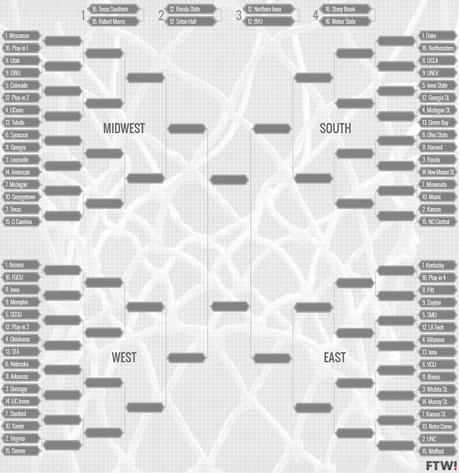
Amanda and I each have an entry in the NCAA basketball contests of our respective offices. Knowing nothing of basketball, she copied my picks, and we are doing pretty well--in her contest, currently 8th out of 38 entries. She just found out about "seeding" and yesterday expressed annoyance upon discovering that one of the seven people ahead of her is a female colleague who also knows nothing of basketball and so evidently adopted the strategy of picking the team with the better seed in every single game. (Don't ask me why this is morally tainted whereas copying your husband is sound.) She (really I) has/have so far picked the correct winner in 25 of 32 games; it looks like operating on the no-upset rule lands you at 27-for-32.
I think the mainly predictable results of the first round are the norm and that the notion that the tournament is consistently marked by stunning upsets is a fiction. There are 63 games in the tournament, so upsets are inevitable, but there aren't very many. The ones that occur get a lot of coverage, which may explain to some degree why casual fans think there are so many of them. It's like the way you always hear people bragging about how well they did at the casino. You can't understand how the Indians are getting rich until it occurs to you that not all outcomes receive the same amount of publicity.
Here, for consideration next March, is what I consider a fun but not necessarily self-destructive strategy. Stick mostly with the favorites, but take one flyer--a team you think is underrated, or one you like for whatever reason that doesn't have a particularly good seed. Amanda and I have Michigan State, a 7-seed, in the Final Four. If they make it, we'll probably pass the know-nothing girl with the no-upsets rule, but at this point I like her chances for staying ahead and close to the top.
